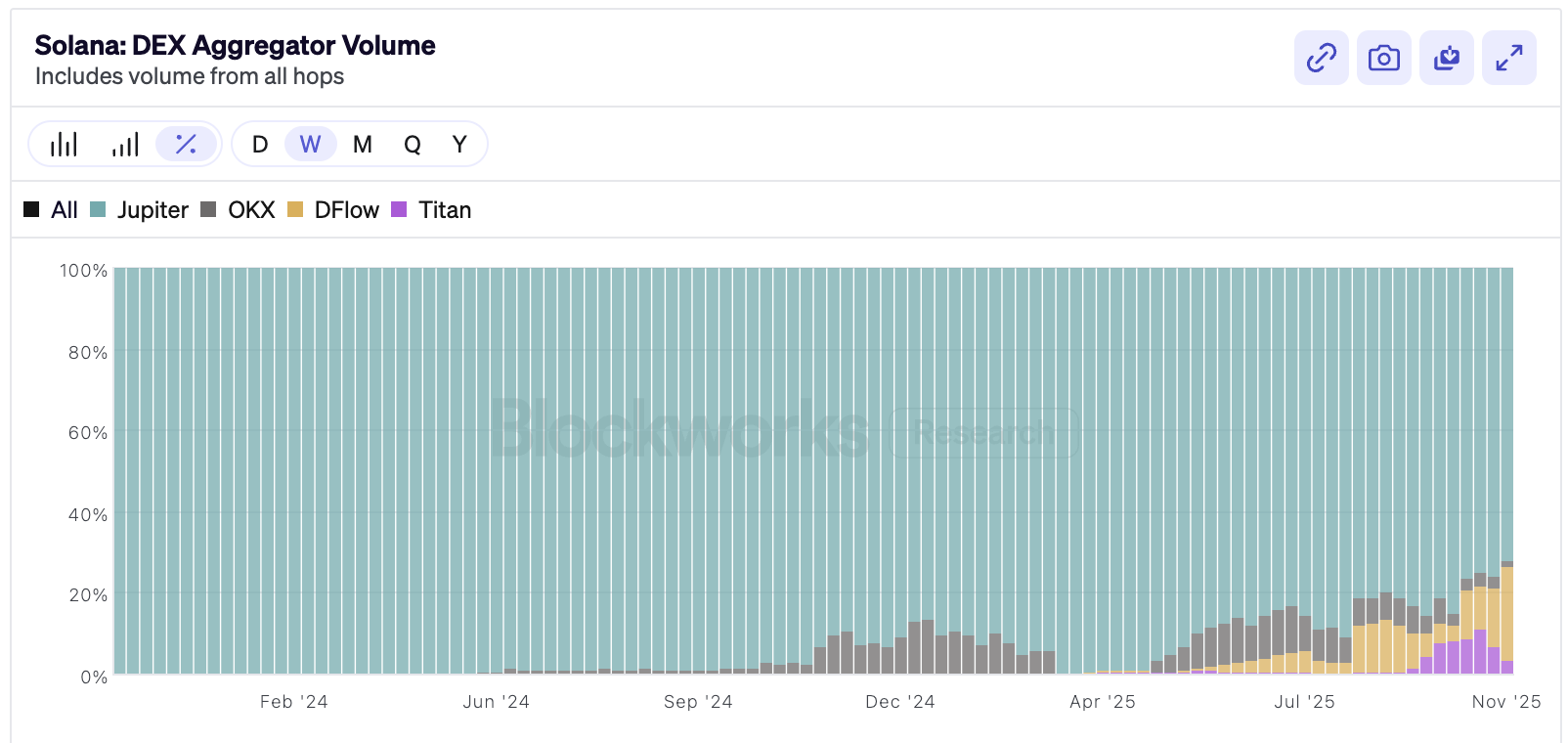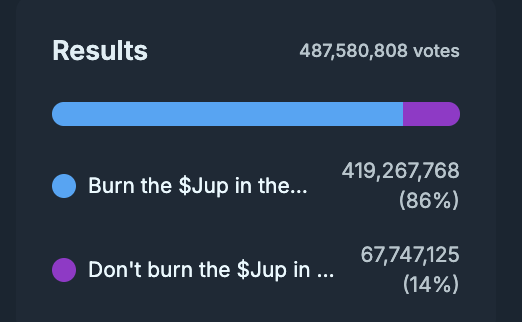
Can Robinhood’s Jupiter Integration Reassert the Aggregator’s Dominance?
Robinhood targets Solana DeFi involvement
- Published:
- Edited:
TradFi giant Robinhood is seeking to onboard its million-strong user base to Solana’s DeFi trenches, leveraging the Jupiter API to enable traders to swap any SPL on the network.
The integration could help Jupiter reaffirm its iron grip on Solana’s emerging aggregator wars, which have seen challengers like DFlow and Titan Exchange steadily gain market share in recent weeks.
Could a possible influx of fresh users help Jupiter reassert its dominance, and how has the recent 9-figure $JUP burn improved sentiment towards the asset?
Robinhood Implements Jupiter API
On November 10, Jupiter announced that Robinhood, a popular Web2 investment application, had integrated the Jupiter Swap API into its native crypto wallet app. The collaboration enables Robinhood wallet users to access and trade SPL tokens across the entirety of Solana’s DeFi economy, including stablecoins, project tokens, and memecoins.
Boasting hundreds of thousands of app downloads, Robinhood Wallet’s integration of the Jupiter API could introduce a new wave of traders and fresh capital to Solana DeFi.
The integration comes at a welcome time for Jupiter, which currently faces the fiercest competition from rival aggregators in the project’s history. After dominating Solana’s aggregation scene for years, emerging platforms like DFlow and Titan are enjoying a larger share of trading volume week on week.

According to Blockworks data, Jupiter’s weekly market dominance has declined in the last 6 months, sliding from 95.08% in May to currently sit at 72.35%.
While the prospect of hundreds of thousands of new Robinhood users routing through Jupiter would certainly boost volumes, it’s also possible that a large portion of this user base might already have access to Solana DeFi through other applications.
$112M Worth of $JUP Burned in Governance
After pausing governance earlier this year, Jupiter DAO returned to the polling booth last week for one of the protocol’s biggest proposals to date.
Using 50% of protocol revenue, $JUP buybacks accumulated over 130M $JUP (valued at $47.8M) since Q1 2025. In the face of stagnating price and an inflationary supply, Jupiter DAO floated a proposal to burn repurchased tokens, representing ~ 4% of the circulating supply.

Despite some arguments that the purchased tokens could be used to fund community incentives, $JUP stakers overwhelmingly opted in favor of disinflation. 86% of voting weight was cast in favor of burning the tokens, with further votes expected to decide the ongoing fate of tokens accumulated through $JUP buybacks in the future.
After a difficult year in the charts, sentiment towards $JUP seems to be turning. While $JUP price has been largely unaffected by the outcome of last week’s vote, Jupiter continues to bring new products to market in its quest to become Solana’s DeFi superapp.
All eyes now turn to Jupiter’s newest products. Following the success of Jupiter Lend, which has amassed almost $1B in TVL, Jupiter’s expansion continues with its emerging prediction marketplace and ICO platform, which is expected to host the launch of HumidiFi’s native token, $WET, later this month.
Read More on SolanaFloor
Farming $SKR? You’ll need this guide:
Solana Seeker Airdrop Guide: How to Maximize Your $SKR Allocation
How to Max Out Your Seeker Activity Tracker:



